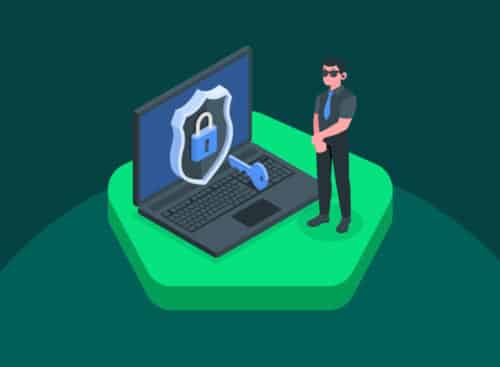
Cyber Hygiene 101: Best security practices for personal digital life
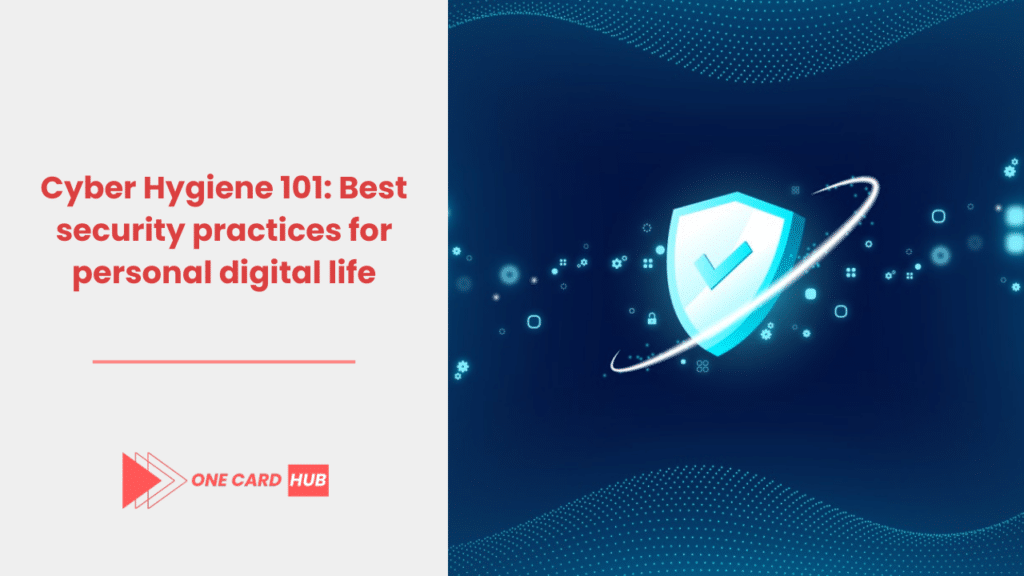
Digital age care should be treated as the second nature, just as personal hygiene. Much like not giving personal hygiene a thought can cause health problems the problem with cyber hygiene is just like that you will be exposing yourself to serious security issues such as identity theft, money loss and leaking of private data. I explore the basics and emphasize the best practices in this article that guide you to the improvement of your cyber hygiene and digital security.
Adhere to the Basic Rules of Cyber Hygiene
Cyber hygiene involves the hard-worn rules or programs users of computers and other devices engage in to make sure system security is constantly improved as well as to maintain system health. Those practices are no less than vital for defense of against cyber threats and sheltering of classified information from cyber criminals.
Regular Updates: The First Echelon of the Defenders
Upgrading your operating system, applications, and software, as simple as it is, is a simple yet very effective cyber hygiene practices you can utilize. Integration is one of the essential parts of the software development process, and it involves regular release of the updates that ensure the removal of security issues. Security patches are periodically plugging and maintaining into the system therefore make sure that the version of your device has the most recent updates.
Strong Passwords: Your digital 'keys'.
If you are concerned about the security of your accounts, then make sure that they have really good passwords. Employ a mixture of characters, numbers, and letters as well as don't involve easily guessable information like birthdays or broad words. The use of password manager might come handy for having unique and complex passwords stored in a single secure place.
Multi-Factor Authentication (MFA): The last protection.
MFA, however, takes security a step further that a password can't do because it adds an additional layer of security on top of it. Extra verification is accomplished through the second form of verification, such as fingerprint or a code sent to your phone. Letting MFA be whenever possible may highly decrease the likelihood of being victimized of account's abuse.
Beware of Phishing: Whether you click an image, a video, or read a sentence, always give it a second thought.
Phishing attacks are of matters which involve the sending of phony messages or emails which look somehow genuine and therefore tricking the victim into disclosing their sensitive information. Be careful of spam-type email such as those requesting your personal information and containing both links and files. Before responding, verify the legitimacy of a request by reaching out to the company through formal channels.
Secure Your Wi-Fi Connection
By connecting to an unsecured Wi-Fi network, you may put your personal information in an unprotected state, facing cybercriminals. Ensure your home Wi-Fi network is corroborated by using a strong password and WPA2 or WPA3 encryption. Use of public Wi-Fi networks in future should be avoided especially when transacting personal data or related matters.
Back Up Your Data
Make sure to back up your files at least once every 2-3 days, as this will give you the ability to recover your information even if you are affected by a cyberattack or hardware problems. Make some external service like Hard Drive or cloud storage in order to keep your important files backed up.
Antivirus Software: A Must-Have
Antivirus program as can scan and wipe from your computer before your system be corrupted. Trust worthy antivirus program is a must! Ensure that the program is kept up to date to prevent the attacks and latest threats.
Monitor Your Digital Footprint
It is advisable to regularly examine your online accounts and the information you share using the available privacy settings. Do not forget social media or other platforms, pay attention to the personal data that you post there.
Educate Yourself: One depends of power on Knowledge.
In today's digital world becoming aware about the most recent cyber threats and security trends can be a way of which renders you one step forward the cybercriminals. Have regular visits to credible cybersecurity news sources and seek part in cybersecurity online meetings.
To rourghe Cyber Hygiene as a Practice.
In the same order as brushing your teeth or washing your hand, you will have to take good cyber hygiene practices as part of your daily routine. Engaging in these effective precautions, you can actually effectively boost your digital security and shield yourself against cyber attacks. Recall that in digital realm you prevent yourself from many spam detergents in fact. Keep this practice in constant motion in line with latest updates and utilize proper cyber hygiene in your digital life.
Enable Privacy Settings: You Fabulous Unbelievable World
In digital space, privacy management on different services became reasonability for reaching your target. These include settings that determine who sees you and how your information can be used. Assess and modify your security settings, including their social media accounts, search engines, and other web-based products to reduce your digital footprint and ensure that your personal
information is safe from unwanted users.
Use Secure Connections: VPNs and HTTPS are just two examples of the various security measures you can take to protect yourself online, but it is important to remember that security is not a
passive activity. It is an active and ongoing process that requires vigilance, education, and collaboration to keep digital threats at bay.
While doing it on the internet make sure you are given the equivalent level of security. Look for "https://" in /www.site.org/confidential, the evidence that the use of encryption on this site to protect your information. Ultimately, in addition to that, a VPN (Virtual Private Network ) will add even more security, mainly when used in public Wi-Fi networks. After encoding the internet connection, the VPN protects the data and information being exchanged from snoopers.
While doing it on the internet make sure you are given the equivalent level of security. Look for "https://" in /www.site.org/confidential, the evidence that the use of encryption on this site to protect your information. Ultimately, in addition to that, a VPN (Virtual Private Network ) will add even more security, mainly when used in public Wi-Fi networks. After encoding the internet connection, the VPN protects the data and information being exchanged from snoopers.
Permission Caution when downloading apps should be Never grant app permissions without conveniently Keep them in mind.
The apps require from you the permissions for the usage of the features of your device like camera, contacts, or for example, your location. Keep in mind your permissions and let the app function with the only amount of detail that's needed from you. Make sure that permissions you have been granted are up to date. Also, if you find that they can put your privacy at risk, remove such permissions right away.
Digital Detox: Delete or Clean out the Unused Apps and Accounts.
If there is the case of digital clutter, it will be housed in this way: unused apps and old online accounts which you no longer need. They can turn into security, since they may be storing sensitive information and the display of security updates is no longer running. One should undertake from time to time to uninstall the apps that they don't use and close the accounts on sites that they don't visit often, with the goal of reducing possible attack vectors.
Stay Skeptical: One Should Ascertain Before Allowing Itself to be Convince.
Presently in the chance of data satiety, not all content that is derived online is trustworthy. Be careful of what looks like “golden deals” when the majority refrain from taking the same offer. Also, be careful of requests for sensitive information and unsolicited advice. When faced with a question of untrustworthiness of the information, always make sure you check the source of the information and never take action such as downloading software or inputting sensitive data without extra confirmation.
Cyber security is a Joint Venture
Persist in the recollection that online security is not just a personal issue but a shared liability among Internet users. Through securing your digital identity you not only protect your own safety but also maintain a more secure music community as well. Bring cybersecurity hygiene practises to life and pass on the ‘kinship’ of digital safety to your friends and loved ones to build a safer cyber environment for everyone.
I pledge to remain steadfast in my fight against cybercrime, ensuring the ongoing safety and privacy of all citizens.
Cyber hygiene is the most important part of protecting our privacy and data-safety which needs to be improved on a regular basis because new threats endanger our lives even online. The last part is, I can hope that using these practices in your daily routine you can boost your personal digital security and interact with the digital world with confidence. Cybersecurity is a lifestyle, which requires continuous learning, being security conscious and vigilant, in order to safeguard your personal online information from criminals you can’t even see.
Define a Secure File Transfer and an Encryption Protocol
Our cyberspace community intermingles these experiences through sharing, especially online where transferring of files and documents is often done. On the other hand, adequate measures must be in place that block unauthorized system access through which crucial data may be obtained illegally. Use encrypted file-sharing service to keep the communication restricted among the participants of the meeting, verify the recipients identity before sending important data and password-protect sensitive documents. Beware about downloading large files from unsecured sites or unknown sources. Be also very careful about someone not you asking for your files.
Manage Your Email Security
Spam and phishing emails are one of the must popular phishing methods which cyber criminals often used to access to the court data. While availing the feature of Email services, go for those which offer high quality spam filter and phishing protection. Don't open attachments or links from seigneurs you don't know, and to use different e-mail accounts for different purposes—one for home use and another for shopping—to compartmentalize your web activity and to secure the data using three forms of protection.
Secure Your Mobile Devices
The handiest similar to mobile devices is their stream ownership may the attackers as they store a lot of personal information. Besides use PIN code or biometric lock, exploits that make it possible to wipe your data in case the device is misplaced or stollen. It's important to periodically install updates on your device's operating system and apps, as well as avoid giving apps permission or an unreliable app store.
Practice Safe Browsing
Your browsing behavior on the internet could be considered as a big factor that is crucial in your online security. Use ad-blocking to avoid malicious adverstiseconding, shut down the JavaScript on untrusted websites that are susceptible to drive-by download, and consider using privacy-oriented browsers or search engines that do not track your online presence. Online websites you visit and the information you share via digital activities are very important in providing security.
Create Digital Boundaries
With rapidly developing technologies and the online landscape full of risks, it’s essential we should build digital boundaries for online safety. This entails tactfully choosing who you link to, the facts you disclose, in the online ecosystems you participate in that ultimately build your reputation. Impart lessons on privacy on the part of families, most especially the children, and also advise on the dangers of divulging personal information at a whim online.
Interacting in the Internet Communities Smartly.
Social places like networks, forums and communities are the resources full of details and they are helpful to socialite nature of people. Nevertheless these may give you a higher chance to be linked with cyber risks. Smart participate by using pseudonyms where possible, be careful about revealing your private information and also avoid sharing weird or dangerous topics that might expose you.
Acceptance of a Cyber-sensible Attitude
In face of continuing technological advancement, our cybersecurity methods must, therefore, be constantly availing in order to cope with emerging threats. Through performing internet hygiene one can effectively be protected from many online threats. Yet, cybersecurity is not just about accomplishing a list of prevention techniques’ algorithms; it’s about progressing a risk acceptance culture. By virtue of committing to the same principles, see to it that you play a key part in disseminating information to others through social media, and ensure that you remain up to date with the latest threats and safety precautions. By using the digital media more responsively, we can go through the digital space successfully and soundly, in case this digital wellbeing is vital for both ourselves and society.
FAQ: We will talk about Cyber Hygiene 101, which is the first step for your digital security.
1. Why is it imperative to keep software well updated since cybersecurity is on the agenda?
Maintaining your software up to date provides closures for the security gaps and this makes your system harder to be exploitable for hackers. #Patches to current security loopholes are now issed a maximum number of times one update might come##Besides, releases also happen almost continuously.
2. What is the strong password role and what is the digital security related?
Acting as strong passwords is creating hurdles at the level of account access for the hackers such that it becomes tremendously hard to trespass on your accounts with an unauthorized access attempt. They need to be of the right depth, be unique for each account and not the same to ensure security.
3. What exactly is multi-factor authentication also called MFA being murphy, and why do we need it all?
MFA, or security process which involves using two or more factors in authenticating, makes the access of the resources much safer as it goes beyond the password where only a password is used before.
4. As phishing attacks become a more prevalent security threat, how can I protect myself from them?
Beware of emails or texts asking to share information or describe why to click through the link. Consumer confusion might arise from such phishing attacks, and so it must be verified by contacting the organization officially.
5. What song can I play while listening to loud music so that it does not feel so loud?
Creating a good and unique password for your Wi- Fi network and turning on the WPA2 or WPA3 encryption is a necessity if you don't want your internet activities being captured by third parties.
6. What role does the offline copy of the data play in ensuring the integrity of the cybersecurity?
Restoring your information is an impossible predicament if a cyberattack or hardware failure causes the loss of your data. You may restore your information using regular backups, however, this will help to both minimize the disruption and reduces losses.
7. What difference does the antivirus software make in the digital safety of the person?
Humanize: Antimalware systems are designed to encounter all kinds of malicious programs, including Trojans, spyware, adware, and other malicious software.
8. Should I worry about my digital identity; how can I manage it efficiently?
Make it a habit to monitor your sharing online accounts and the settings so that you control what information is shared and accessible. Have the awareness on information you share on the internet and faves granted to apps and services.
9. What is the rationale behind why cybersecurity education is necessary?
Keenly monitoring the continually emerging cyber security risks and safety measures leads you to develop safer online attitudes and more significantly these ensure you make informed choices about your digital security.
10. Why secure file-sharing is important and what are the best practices for this?
Secured data transferring procedures include using an encrypted provider, verifying the identity of the recipients and considering the implementation of additional measures like adding passwords to highly confidential documents in order to prevent unauthorized access to the information by unwanted actors.
Maintaining your software up to date provides closures for the security gaps and this makes your system harder to be exploitable for hackers. #Patches to current security loopholes are now issed a maximum number of times one update might come##Besides, releases also happen almost continuously.
2. What is the strong password role and what is the digital security related?
Acting as strong passwords is creating hurdles at the level of account access for the hackers such that it becomes tremendously hard to trespass on your accounts with an unauthorized access attempt. They need to be of the right depth, be unique for each account and not the same to ensure security.
3. What exactly is multi-factor authentication also called MFA being murphy, and why do we need it all?
MFA, or security process which involves using two or more factors in authenticating, makes the access of the resources much safer as it goes beyond the password where only a password is used before.
4. As phishing attacks become a more prevalent security threat, how can I protect myself from them?
Beware of emails or texts asking to share information or describe why to click through the link. Consumer confusion might arise from such phishing attacks, and so it must be verified by contacting the organization officially.
5. What song can I play while listening to loud music so that it does not feel so loud?
Creating a good and unique password for your Wi- Fi network and turning on the WPA2 or WPA3 encryption is a necessity if you don't want your internet activities being captured by third parties.
6. What role does the offline copy of the data play in ensuring the integrity of the cybersecurity?
Restoring your information is an impossible predicament if a cyberattack or hardware failure causes the loss of your data. You may restore your information using regular backups, however, this will help to both minimize the disruption and reduces losses.
7. What difference does the antivirus software make in the digital safety of the person?
Humanize: Antimalware systems are designed to encounter all kinds of malicious programs, including Trojans, spyware, adware, and other malicious software.
8. Should I worry about my digital identity; how can I manage it efficiently?
Make it a habit to monitor your sharing online accounts and the settings so that you control what information is shared and accessible. Have the awareness on information you share on the internet and faves granted to apps and services.
9. What is the rationale behind why cybersecurity education is necessary?
Keenly monitoring the continually emerging cyber security risks and safety measures leads you to develop safer online attitudes and more significantly these ensure you make informed choices about your digital security.
10. Why secure file-sharing is important and what are the best practices for this?
Secured data transferring procedures include using an encrypted provider, verifying the identity of the recipients and considering the implementation of additional measures like adding passwords to highly confidential documents in order to prevent unauthorized access to the information by unwanted actors.

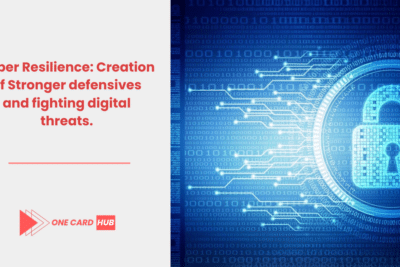
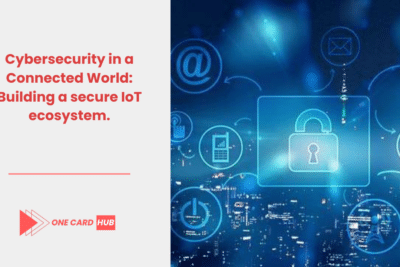
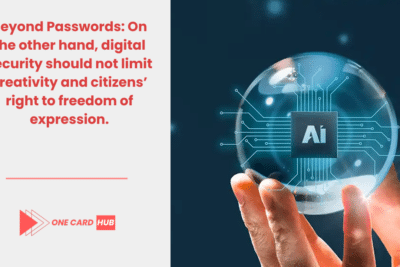
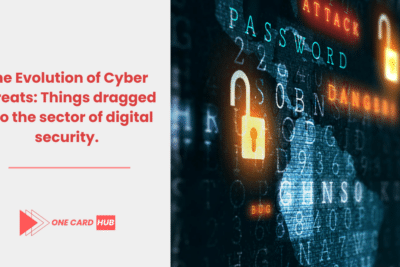
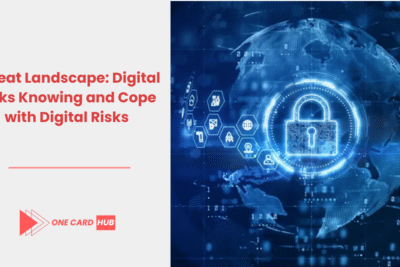
Related posts